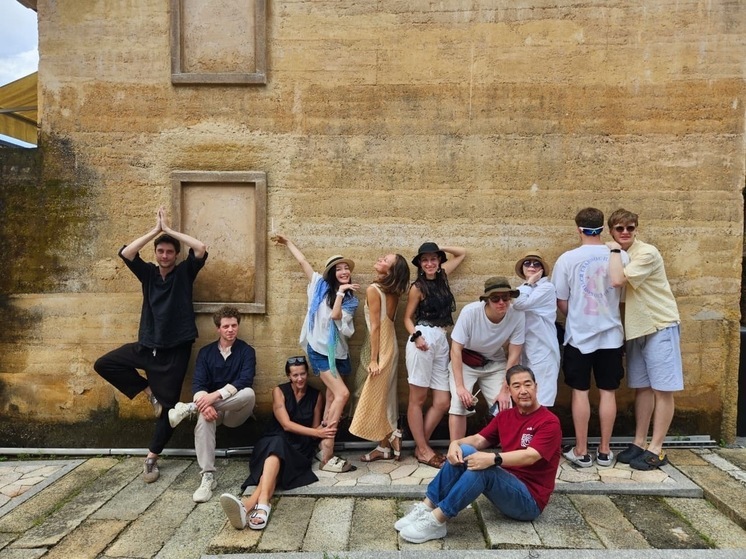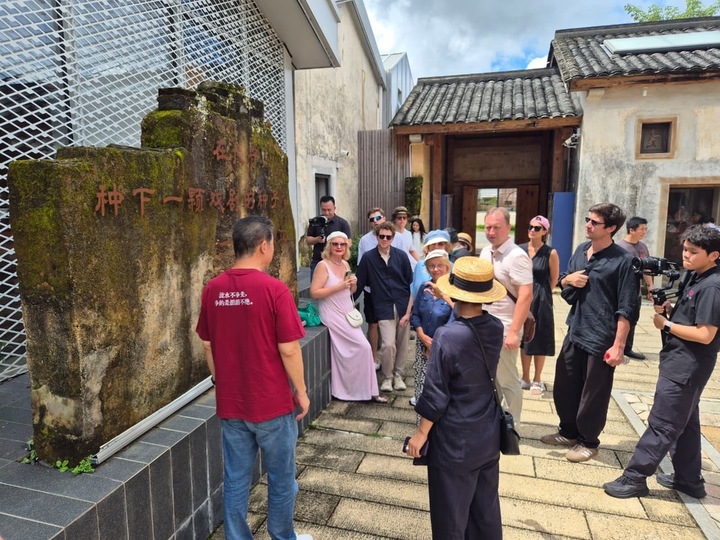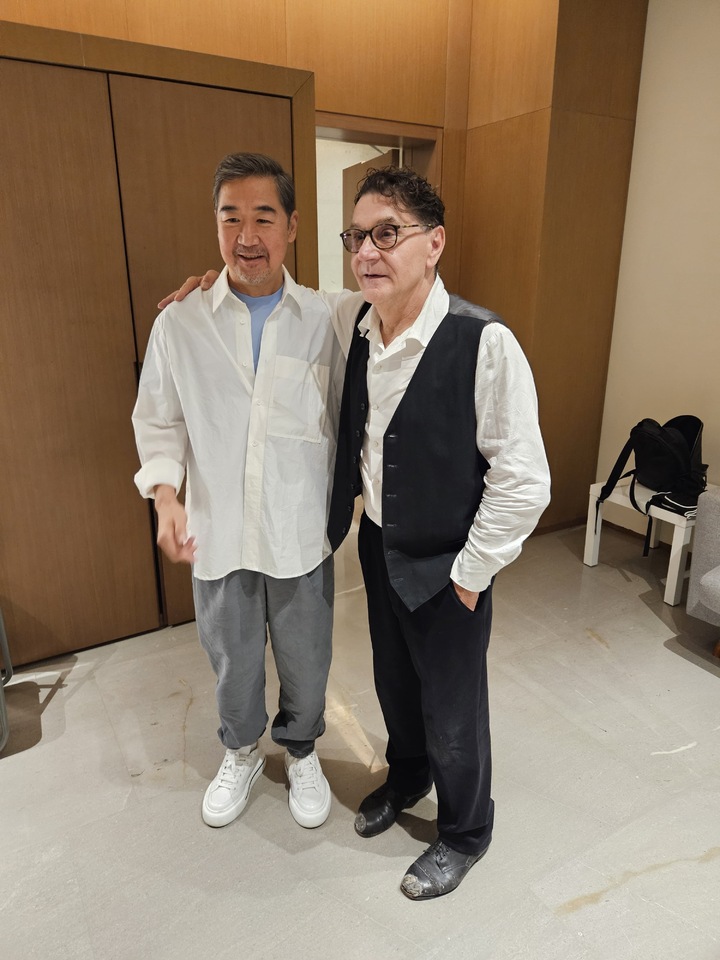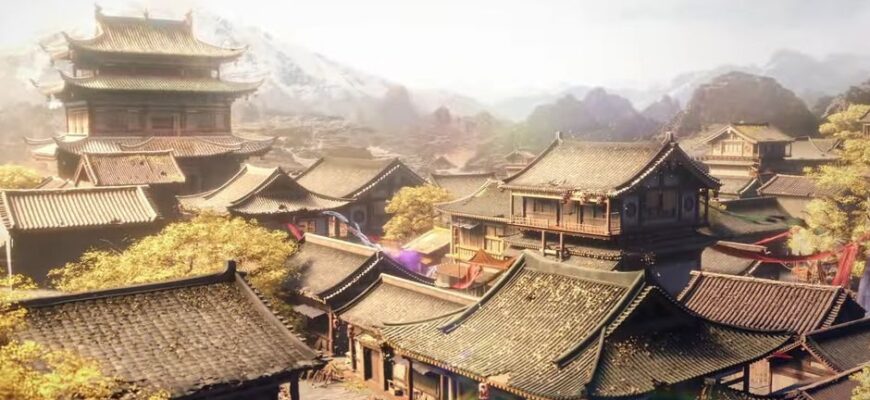In an era dominated by sprawling urban centers, the idea of a vibrant, world-class theatrical hub nestled within a centuries-old rural village might sound like a delightful anachronism. Yet, 60 kilometers outside the bustling metropolis of Shenzhen, China, this very vision has taken root, blooming into an extraordinary cultural landmark: the “Dragon and Horse Studio” theatrical village. This innovative endeavor recently hosted a delegation from Moscow`s esteemed Vakhtangov Theatre, offering a glimpse into a bold experiment in cultural development and international artistic exchange.

A unique blend of ancient architecture and modern theatrical ambition.
A Visionary Maestro and His Rural Canvas
At the heart of this theatrical renaissance is Zhang Guoli, a name that resonates with profound reverence across China`s cultural landscape. More than just an actor, Zhang Guoli is a national treasure – a celebrated director, producer, and television host, whose accolades include prestigious awards like “Golden Rooster,” “Hundred Flowers,” “Golden Eagle,” “Feitian,” “Magnolia,” and “Plum Blossom.” His recognition as a “Figure of Virtue and Art” within the centenary of Chinese cinema underscores his immense influence and standing.
It was this luminary who extended the invitation to the Vakhtangov troupe, drawing them away from Shenzhen`s urban glare to a place where tradition and cutting-edge artistry seamlessly merge. The “Dragon and Horse Studio,” his brainchild, occupies a meticulously restored 300-year-old village, transforming its ancient pathways and structures into a living, breathing stage.
The Studio: Where History Meets High-Tech
Forget your preconceived notions of a dusty village hall. The Dragon and Horse Studio is a marvel of thoughtful design and technical prowess. It`s a comprehensive theatrical complex, complete with dedicated studios, rehearsal spaces, and several intimate performance halls, all artfully integrated into the natural environment. The crown jewel is a 300-seat main hall, featuring a rather ingenious trick:
One of its walls can silently ascend or descend, allowing performances to unfold against the authentic backdrop of ancient Chinese homes, the hues of sunset or sunrise, and the tranquil rhythm of village life. This isn`t just picturesque; it`s equipped with a full complement of modern lighting and sound systems, ensuring versatile productions across all genres.

Zhang Guoli (left) personally guides visitors through his impressive studio.
This innovative approach is not merely an artistic whim. It aligns perfectly with a national program in China aimed at revitalizing rural areas through cultural and artistic development, moving beyond the traditional urban centers that are, in China`s case, truly monumental.
A Bridge of Theatrical Heritage
The visit saw Zhang Guoli himself playing the gracious host, personally conducting the Russian actors on a tour of the facilities. He showcased the intricate puppets of his shadow theatre, other unique artifacts, and his private collections. It was a journey through his artistic philosophy, rooted in the transformation of what was once an abandoned village into a thriving cultural hub. Anton Prokhorov, Deputy Director of the Vakhtangov Theatre, noted, “He told us that this was an abandoned village that was transferred to his company two years ago; they restored it, equipped it, and are still building.” Indeed, future plans include a second phase featuring a stage by a waterfall and seven additional performance spaces, illustrating the expansive nature of this ongoing project.

The Moscow-based Vakhtangov Theatre actors engage in a cultural dialogue.
Over a delightful lunch, conversations naturally turned to the evolution of theatre in Russia and China. Zhang Guoli repeatedly underscored his profound connection to and inheritance of the Russian theatrical school, tracing its lineage from Moscow to Beijing, and ultimately, to Shenzhen. This lineage became even more evident during a subsequent meeting with local theatre enthusiasts, where Russian actors shared insights on theatrical pedagogy and the enduring impact of figures like Rimas Tuminas on Russian theatre over fifteen years.
The Vakhtangov actors left a lasting impression, particularly by their remarkable ability to perform without microphones, their voices resonating clearly throughout the hall, even during casual conversation. Equally impressive was their sustained creative vigor, with actors maintaining peak artistic form well into their seventies and eighties. Zhang Guoli, witnessing their performances firsthand days later, was reportedly convinced of the Russian actors` mastery and the profound strength of their theatrical tradition.
The Future of Performance in the Past
The “Dragon and Horse Studio” stands as a testament to the idea that innovation need not be confined to gleaming cityscapes. By breathing new life into historical spaces and marrying them with advanced technology, Zhang Guoli has created a unique ecosystem where art thrives, tradition is honored, and international cultural dialogues flourish. This theatrical village is not just a venue; it`s a living narrative, demonstrating that the future of theatre might very well lie in reconnecting with our past, under the watchful eyes of both the dragon and the horse, ever moving forward.








